Video projectors used to be a high-end home theater luxury. However, over the years video projectors have increased in quality, with many now supporting 4K UHD resolution, eliminating short use life lamps, and providing more flexible installation options. All of this plus decreasing prices makes a video projector a viable alternative to an expensive large screen TV.
The biggest growth in the video projector landscape has been the increasing popularity of UST (Ultra Short Throw) laser projectors (aka Laser TV). However, many home theater enthusiasts prefer a “traditional” projector form factor that requires more distance between the projector and the screen.
Projectors like the Epson Pro Cinema LS12000 make a lot of sense for those people who can’t go down the UST route.

What the Epson Pro Cinema LS12000 Offers
Here is a rundown of the key features and specifications of the Epson LS12000.
- Tip: The LS1200 does not include any “smart features” such as built-in WiFi, streaming platform, or Bluetooth.
Projector Placement Options: Flexible front, front ceiling, rear, and rear ceiling placement options.
Resolution: 4 UHD via Pro UHD Advanced Pixel Shifting using “precision shift glass plate technology”. This means that the projector incorporates three 1080p resolution LCD chips (red, green, and blue). Epson’s glass plate system is then used to shift the pixels rapidly so that visually a 4K UHD image is displayed.
Light Source: The LS12000 incorporates a Laser/Phosphor light source. This means that a blue laser array is used in combination with a fixed yellow phosphor, dichroic mirrors, and color filters to create the needed red, green, and blue primary colors, which are then blended to create full-color images.

Laser Light Source Life: 20,000 use hours
White Brightness: 2,700 ANSI Lumens
Color Brightness: 2,700 CLO Lumens
Video Processing: The Epson Pro Cinema LS12000 incorporates its homegrown ZX Picture Processor. This processor optimizes color, contrast, HDR, frame interpolation, and resolution enhancement in real-time to present the source material the way it was intended to be shown.
High Dynamic Range (HDR) Support: HDR10, HDR10+, HLG. Real-time HDR curve adjustment allows for 16 steps of control to fine-tune the HDR performance regardless of the content.
Preset Color/Picture Modes: Dynamic, Vivid, Bright Cinema, Cinema, Natural, B&W Cinema
Refresh Rate: 120 Hz Refresh Rate (including 4K/120Hz). Frame interpolation for sources below 120Hz.
Lens: Epson VRX Cinema Lens utilizes a proprietary zero light leakage 15-element precision glass structure for image clarity and edge-to-edge focus uniformity.
Throw Distance: 10.3 feet to 29.5 feet. The throw distance is the distance range between the projector and the image on the screen (i.e., the distance that the image is “thrown”).
Image Size Range: Depending on the throw distance the LS 12000 can project image sizes from 50 to 300 inches. Here is a handy throw distance/image size calculator.
Keystone (Digital): Horizontal and Vertical +/- 30 degrees.
Lens Shift: 3-Axis motorized lens shift provides Horizontal +/- 47%, Vertical +/1 96% lens positioning without moving the entire projector or causing image shape distortion. This is very practical if the projector can’t be mounted directly in front of the screen. Lens Shift is often more precise than Keystone Correction, but the LS12000 offers both options.
Zoom/Focus: Motorized, Zoom Ratio 1-2.1
ISF® Certified: This means that the LS12000 provides settings for an ISF (Imaging Science Foundation) Certified Technician to professionally calibrate the projector for the best possible image performance.
Fan Noise: 22 – 30 dB. This is fairly quiet for a large projector.

Control: The LS1200 comes with a wireless remote and control buttons on the rear panel of the projector.
Projector Size (HxWxD): 7.60 x 20.50 x 17.60-inches.
Projector Weight: 28.0 lbs
Connections

Here are the connections provided with the LS12000.
HDMI (ver 2.1): 2, one of which supports eARC/ARC. Supports the full 48 Gbps bandwidth. 4K/120 Hz is also supported, along with input lag times below 20 ms. This projector is a great match for gamers.
- Tip: The LS12000 doesn’t have a built-in speaker system, but will pass audio from HDMI-connected devices via HDMI-ARC/eARC to an external audio system.
USB Type-A: 1 Can be used to power an optical HDMI cable (up to 300 mA) if needed and if the cable provides this option.
USB Type-A: 1 for 5 V, 2.0 A for power (such as charging compatible devices), and firmware updating.
Mini USB: 1 (for service only)
Ethernet/LAN RJ45: 1
RS-232C: 1 for wired control.
Trigger Out: 1 (On, Off control) 12 V DC, 200 mA maximum

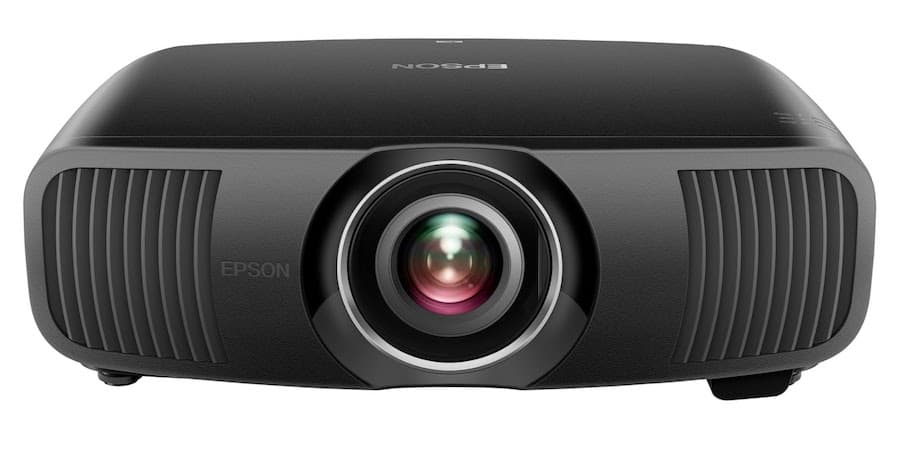
What Comes In The Box
Here is what you get when you unpack the LS12000.
- Pro Cinema LS12000 projector
- Ceiling Mount (even if you aren’t currently planning to mount the LS1200 on the ceiling, you have the mount in case you decide to later, so save it).
- Cable Cover
- Detachable Power Cord
- Remote Control with (2) AA batteries
- Quick Setup Guide
Anamorphic Lens Option: 3rd party anamorphic lens kit sold separately.
Full specifications (pdf)
Availability and Pricing
The Epson Pro Cinema LS12000 4K PRO-UHD Laser Projector is available now for $4,999 at ProjectorScreen.com. For dealers near you, visit epson.com.



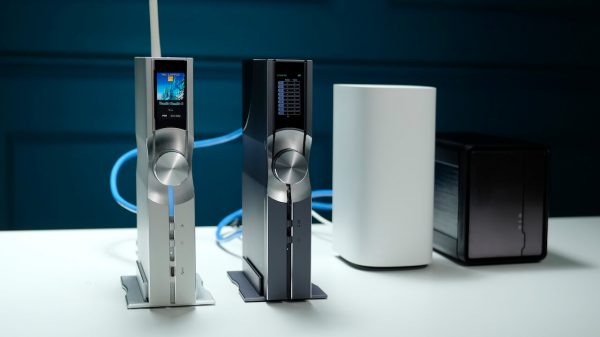
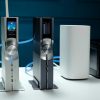
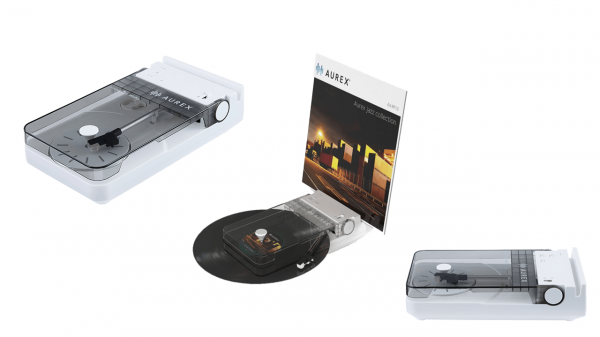
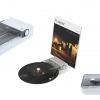
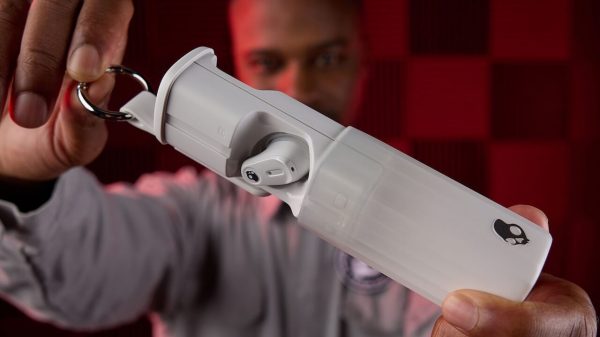
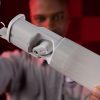
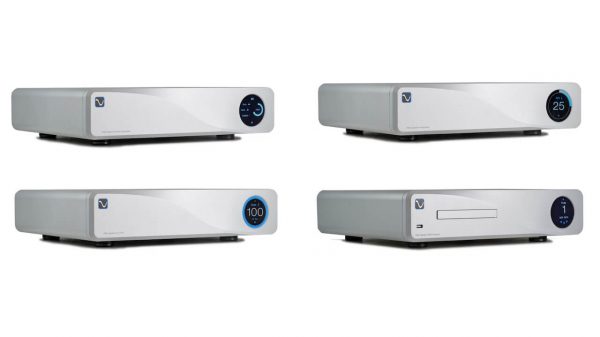

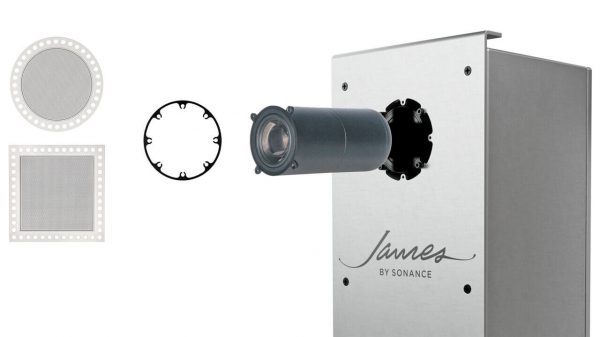
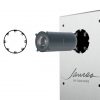






















Phil Fair
February 20, 2022 at 4:31 pm
How does this Epson projector compare to Sony’s VW325ES projector?
Ian White
February 20, 2022 at 4:35 pm
Phil,
Until we can compare them side-by-side, impossible to know. It’s only being delivered to dealers soon.
Ian White
Arnold Sarindu
April 18, 2022 at 9:53 pm
I stream almost all my movies and currently have the Sonos ARC 5.1 system. Can this projector connect to Roku and to the Sonos Arc? If so, how?
Robert Silva
October 2, 2022 at 6:30 pm
The projector has an HDMI-ARC/eARC for connection to the Sonos ARC. You can connect a Roku device to one of the available HDMI inputs – you will be able to display the video and audio will be routed through the HDMI-ARC/eARC connections to the Sonos ARC.
Stephen Dale
December 3, 2022 at 6:29 pm
Curious to know how much heat does the LS12000 produce. I currently have a Sanyo lamp projector that produced a lot of heat to the point that the room get to be too hot.